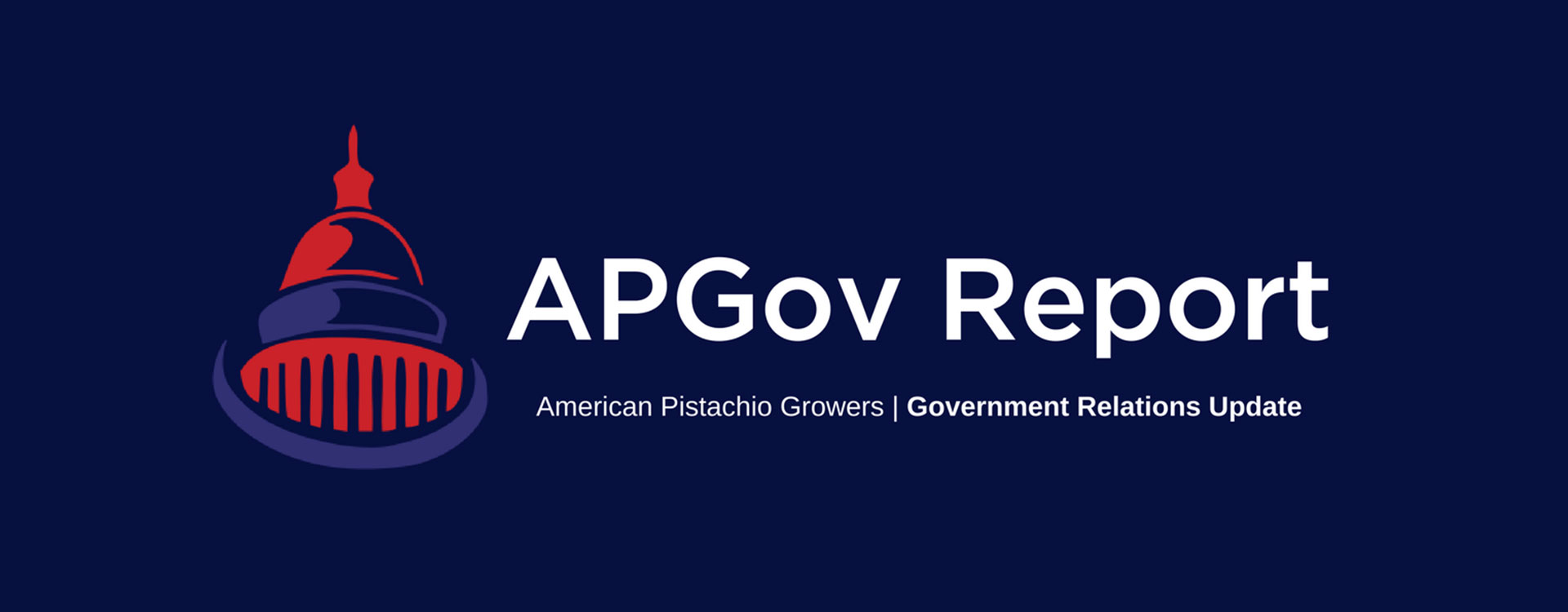APG Advocating for Members on the Political Front Lines
 Meet APG'S New Director of Government Relations, Rob NashIn October, APG welcomed Rob Nash to the team as Director, Government Relations. Prior to APG, Rob worked in Sacramento in the State Senate as a policy advisor for Senator John Moorlach (R-Costa Mesa). Rob has a bachelor’s degree in political science from the University of Illinois at Urbana-Champaign and a J.D. and Capitol Certificate in Public Law & Policy from the University of the Pacific McGeorge School of Law. Please feel free to contact Rob at RNash@AmericanPistachios.org. |
International Policies & Trade
 American pistachios see another rise in China tariffs, but avoid them in other parts of the world.
American pistachios see another rise in China tariffs, but avoid them in other parts of the world.
On July 6, the Peoples Republic of China implemented a new round of tariffs on products imported from the United States, including an increase in tariffs on American pistachios1. Earlier this year, American pistachios saw tariff rates rise from 5% to 20%2. This second round of tariffs increases the amount by 25% for a total of 45% on raw in-shell and shelled pistachios3. Roasted pistachios in sealed containers and in bulk saw their tariff rate decrease from 13% to 5% and 10% to 5%, respectively4.
The additional 25% tariff imposed by China on a number of goods, including tree nuts, went into effect on July 6. Now, as a result, President Trump has proposed additional tariffs on various Chinese products. The United States Trade Representative’s office (USTR) is receiving written comments on these newly proposed tariffs until August 17, 2018. These proposed tariffs will not go into effect on Chinese products before August 30, 2018.
Memo from APG's Federal Lobbyist
As the United States continues to reform its trade policies, many countries are retaliating with tariffs on American products. The EU5, Canada, and Mexico6 have already announced retaliatory tariffs. Seemingly unrelated to U.S. actions, India announced an increase in tariffs on other tree nuts entering the country7. Fortunately, pistachios were not included in the product lists released by those countries.
This past week, APG Director of Government Relations Rob Nash participated in a roundtable discussion on international trade with Congressman Jim Costa and other members of the agriculture industry. APG continues to monitor the trade situation and engage with federal officials and agriculture coalitions across the country to help achieve an agreeable solution for the American pistachio industry.
Sources:
1GAIN Report, 6/21/18, “China Responds to U.S. 301 Announcement with Revised Product List,” pp. 1-6, 18. (“GR1”)
2GAIN Report, 3/23/18, “China Targets U.S. Agriculture in Response to U.S. Trade Actions,” pp. 1-4, 5. (“GR2”)
3GR1.
4GAIN Report, 6/4/18, “China to Cut Tariffs on Agricultural Products,” pp. 1-4, 24. (“GR3”)
5GAIN Report, 6/21/18, “EU Imposes Additional Tariffs on U.S. Products.” (“GR4”)
6GAIN Report, 6/6/18, “Mexico Announces Retaliatory Tariffs.” (“GR 5”)
7GAIN Report, 6/7/18, “Government of India Increases Tariff on Certain Agricultural Imports.” (“GR 6“)
APG Statement on Tariffs
American Pistachio Growers supports an end to the tariff issue between the United States and China and urges both countries to come together and work out an amicable solution that will allow trade to continue and both economies to prosper. China is an important export destination for American-grown pistachios, and the lack of resolution of this issue could hurt both American growers and Chinese consumers alike. American Pistachio Growers appreciates all the business we have with our Chinese buyers and consumers and looks forward to this continued relationship into the future.
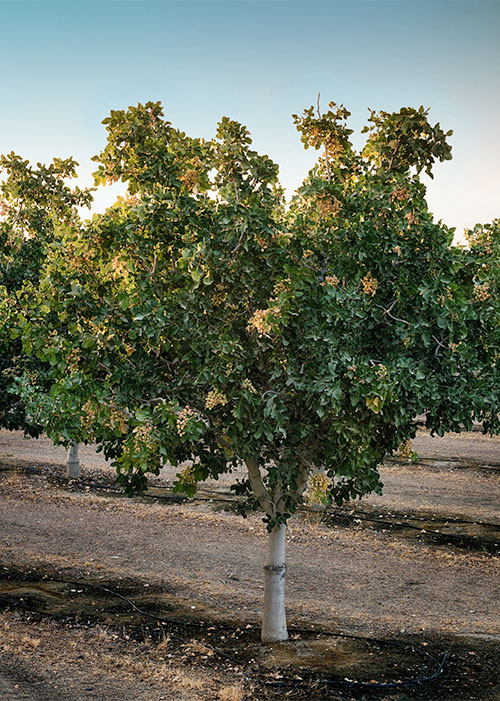 New EU MRL
New EU MRL
New EU MRL for phosphonate fertilizer will allow for use in pistachio production.
On June 6, 2018 the EU published permanent Maximum Residue Levels (MRLs) for fosetyl-al on tree nuts. The new MRLs are set at 500 ppm and will enter into force on June 26, 2018.
Without this definitive MRL, the temporary level of 75 ppm that has been in place for the most commonly traded tree nuts would revert back to 2 ppm on March 1, 2019.
Pistachio PAC
Outreach and Activities
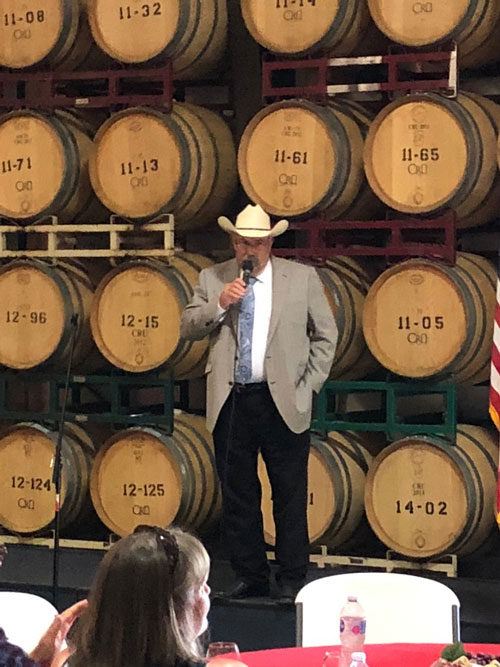 APG PAC Sponsors district event for Assemblyman Frank Bigelow Assemblyman Frank Bigelow
APG PAC Sponsors district event for Assemblyman Frank Bigelow Assemblyman Frank Bigelow
The APG California PAC helped sponsor an event for Assemblyman Frank Bigelow (R-O’Neals) at CRU Winery in Madera, CA. The Assemblyman represents Assembly District 5, which encompasses all or part of Madera, Mono, Mariposa, Tuolumne, Alpine, Calaveras and El Dorado counties.
As a lifelong farmer, including some pistachio orchards, Assemblyman Bigelow understands the issues facing agriculture today, and has been a fierce advocate on agriculture’s behalf since his election in 2012.
The event was attended by: Jamie Bledsoe, APG Government Policies & Partnerships Committee Vice-Chair; Karun Samran, APG member and LeadOn participant; Richard Matoian, APG Executive Director; and Rob Nash, APG Director of Government Relations.
LeadOn'18 Tour
LeadOn Class visits the California Capitol
On June 28, the APG LeadOn class took a field trip up to Sacramento to see the California State Capitol and learn how the policies impacting the pistachio industry and created and implemented. The trip was a follow up to the May LeadOn seminar, where the class was introduced to APG’s involvement in government relations.
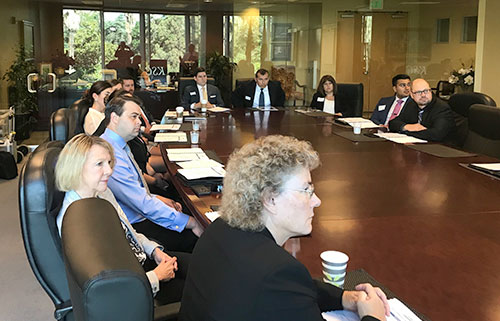 The class started the day by participating in morning sessions led by lobbyist George Soares, communications specialist Stevan Allen, and Chief Deputy Director of California Department of Pesticide Regulation Teresa Marks. Over lunch the class was joined by legislative member and committee staff, giving them an opportunity to network with those who spend their days creating the policies that come out of the Capitol. There was even a surprise visit from Assemblyman Devon Mathis (R-Visalia), who stopped by to say hi and talk with the class.
The class started the day by participating in morning sessions led by lobbyist George Soares, communications specialist Stevan Allen, and Chief Deputy Director of California Department of Pesticide Regulation Teresa Marks. Over lunch the class was joined by legislative member and committee staff, giving them an opportunity to network with those who spend their days creating the policies that come out of the Capitol. There was even a surprise visit from Assemblyman Devon Mathis (R-Visalia), who stopped by to say hi and talk with the class.
Following a tour of the Capitol Building, including opportunities to walk through the Senate and Assembly chambers, the class participated in a mock legislative hearing, where individuals were assigned roles as legislators, lobbyists and other advocates to debate legislation before the committee.
Water Bond
Lend some space to Proposition 3 effort
 The Water Bond officially has a ballot number for the November 2018 ballot, Proposition 3.
The Water Bond officially has a ballot number for the November 2018 ballot, Proposition 3.
As a supporter and contributor to the campaign for Proposition 3, APG is actively involved in the steering committee directing the campaign. Now that the June primary is completed, the campaign is beginning to gear up, and the steering committee is looking for ways to promote the bond initiative.
If there are any APG members with land adjacent to a major highway that would be willing to offer up space for a “Support Prop 3” campaign sign, please contact APG Director of Government Relations Rob Nash at (559) 475-0435 or by email.
Additional Tariffs to be Implemented
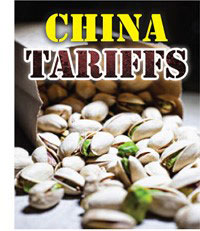 China has announced additional tariffs on 545 products exported to China from the United States. Read the memo from APG's federal lobbyist regarding China's latest retaliatory tariffs on U.S. products, and the USDA GAIN report. The USDA GAIN report details the additional tariffs, including the tariffs on U.S. pistachios (kernels and in-shell). The proposed tariffs will be imposed on July 6.
China has announced additional tariffs on 545 products exported to China from the United States. Read the memo from APG's federal lobbyist regarding China's latest retaliatory tariffs on U.S. products, and the USDA GAIN report. The USDA GAIN report details the additional tariffs, including the tariffs on U.S. pistachios (kernels and in-shell). The proposed tariffs will be imposed on July 6.
APG continues to communicate with Congress, the Administration and the United States Trade Representative's office regarding this issue.
Farm Bill 2018
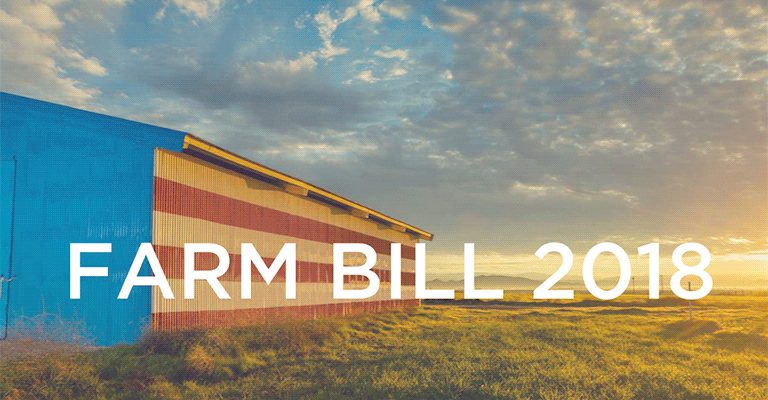 The current Farm Bill was passed in 2014 and is set to expire in September 2018. Both the U.S. House and Senate have each developed their own versions of a replacement Farm Bill which will need to be reconciled at Conference later in the year.
The current Farm Bill was passed in 2014 and is set to expire in September 2018. Both the U.S. House and Senate have each developed their own versions of a replacement Farm Bill which will need to be reconciled at Conference later in the year.
House Farm Bill fails passage
The House version of the Farm Bill has been the subject of much partisan debate and politicking, and a May 18thfloor vote failed to garner enough votes to pass. The bill includes a change to the work requirements of the Supplemental Nutrition Assistance Program (SNAP), which would require certain participants to work 20 hours a week or enroll in a training program. This change, which was opposed by the House Democrats, would apply to SNAP recipients between the ages of 18 and 59, who are not disabled or elderly, and are not pregnant or caring for a child under the age of 6 (approximately 5-7 million current participants).
Additionally, the House Freedom Caucus demanded that a vote be taken on immigration legislation before their members would support the Farm Bill. At this juncture, the bill likely will not be brought up for another vote until there is a vote on immigration legislation. Even if that issue is handled first, the bill still faces Democrat opposition unless amendments are made to the SNAP changes.
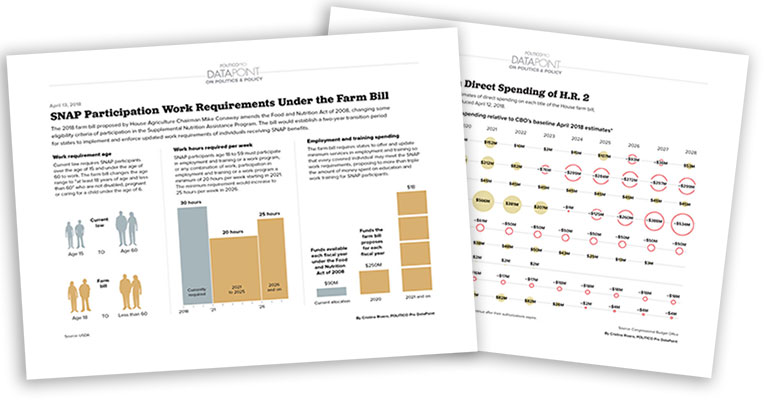 Senate Ag Committee Passes Farm Bill
Senate Ag Committee Passes Farm Bill
On June 8, Senators Pat Roberts (R-KS)and Debbie Stabenow (D-MI)released the Senate version of the Farm Bill. The bill was heard for markup in the Senate Committee on Agriculture, Nutrition, & Forestryon Wednesday, June 13, where it passed with a 20-1 vote. Next will be a Senate floor vote.
The bill is considered much more bi-partisan, with both Roberts and Stabenow listed as sponsors. The changes to the SNAP working requirements that were in the House version are not in the Senate version of the bill. This disparity will likely have to be sorted out at Conference.
Bushy Top Approved for TAP
On May 31, the United States Department of Agriculture, Farm Service Agency (USDA-FSA) State Committee approved pistachio Bushy Top Syndrome as a natural disaster, thereby allowing pistachios to be included in USDA’s Tree Assistance Program (TAP).
This means that eligible growers affected by the Bushy Top Syndrome could receive government assistance for the replacement of their affected trees. The program will be implemented in Fall of 2018 and will be retroactive to 2012.
Growers from all states affected by Bushy Top Syndrome will be allowed to participate. Like a number of other Federal programs, TAP participation has a number of restrictions, including participation limited to entities with adjusted gross income below the federal cap of $900,000; and cost reimbursement only for the removal and replanting costs of the affected trees, not for the trees themselves.
American Pistachio Growers has been diligently working on this issue for over a year attempting to qualify pistachios for this Federal program. We will keep you updated as more details are released.
This is a significant victory for our industry and it was accomplished through the perseverance of APG and our ongoing federal lobbying effort.
PAC Update
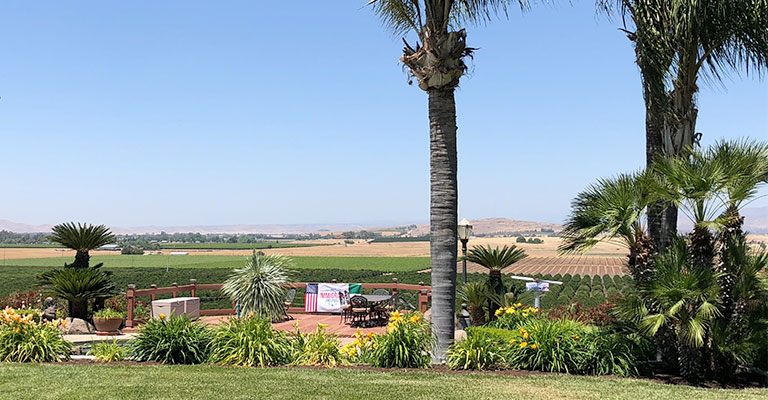 Senator Dianne Feinstein Luncheon
Senator Dianne Feinstein Luncheon
The APG Pistachio PAC participated in a luncheon fundraiser for Senator Dianne Feinstein (D-CA). The event was held at the home of Manuel Cunha, president of the Nisei Farmers League. APG Director of Government Relations, Rob Nash, attended on the PAC’s behalf. The Senator has been serving California in the Senate since 1992, and despite hailing from urban San Francisco, has been a strong ally to agriculture in California. During the event, the Senator expressed an earnest desire to hear about and work on issues facing the Central Valley, especially those surrounding water. She asked for more information on water issues that so can utilize when formulating federal water policy.
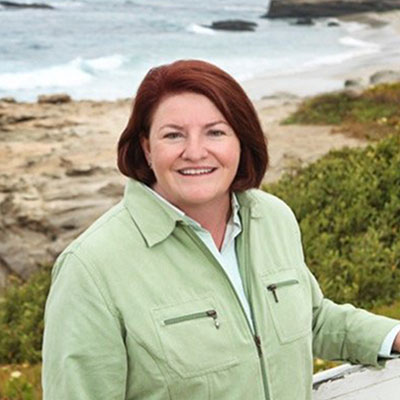 Senate Pro Tem Toni Atkins Dinner
Senate Pro Tem Toni Atkins Dinner
On June 23, the Agricultural Presidents’ Councilhosted a dinner for the newly elected Senate Pro Tempore, Senator Toni Atkins (D-San Diego). The APG California PAC participated in the event and was represented by Rob Nash, APG Director of Government Relations. Prior to the Senate, Atkins served in the California Assembly, where she also held the highest leadership position, Speaker of the Assembly. Over her career in the legislature, the Senator has worked to develop a relationship with agriculture, even though she represents an urban district in Southern California. With Pro Tem Atkins, we have an engaged legislator who is always willing to listen to agriculture’s needs and concerns.
LeadOn
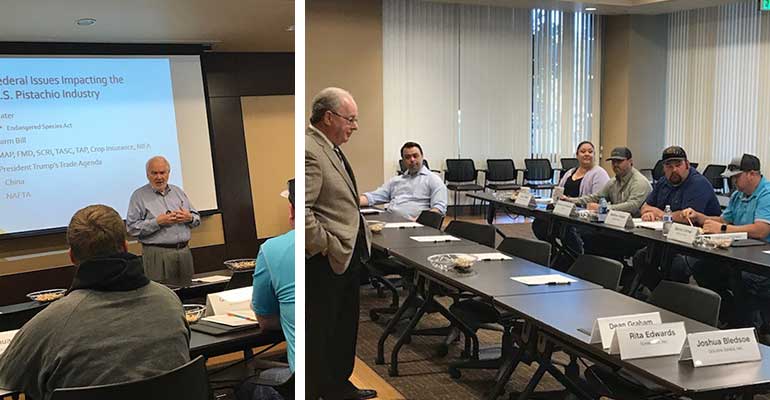 LeadOn Class gets an education in government
LeadOn Class gets an education in government
The May meeting of the APG LeadOn class was on the topic of Legislative and Regulatory Activities of APG. APG lobbyists George Soares and Bob Schramm made presentations to the group on the political landscape in Sacramento and Washington D.C., respectively. Both of them stressed the importance of staying involved in the goings on of government; what’s happening will continue to happen whether you are engaged or not, so better to pull up a chair and have a seat at the table. The LeadOn class will follow this up with a trip to Sacramento to see the California State Capitol later this month.
APG on Tour
District Tour with Assemblywoman Blanca Rubio
On June 8, the Agricultural Presidents’ Councilwas invited to tour California Assembly District 48, represented by Assemblywoman Blanca Rubio (D-Baldwin Park). Rob Nash, APG Director of Government Relations, attended the tour on behalf of the association. The group was treated to a tour of the water and dam system of the Upper San Gabriel Valley Municipal Water District, and Rob was able to find another Godfatherfanatic in Assemblywoman Rubio. The assemblywoman has previously come to the Central Valley to tour agriculture fields and facilities, and expressed an interest in adding pistachio operations to that list.

Temperance Flat Project Hits Roadblock
Receives No State Prop 1 Funding
Earlier this month, the Temperance Flat Reservoir Project proponents made one last appeal directly to the California Water Commission for funding from the Proposition 1 (2014) Water Storage Investment Program (WSIP). Unfortunately, while they were able to increase their public benefit score previously awarded by Commission staff, the commissioners still found that the project provides no ecosystem benefit. Since at least 50 percent of the public benefit must come from benefits to the ecosystem, the Temperance Flat project is ineligible for any WSIP funds.Water Bond Update
 The Water Bond has officially been certified for the November 2018 ballot.
The Water Bond has officially been certified for the November 2018 ballot.
With the Temperance Flat project receiving no state Proposition1 funding, passing the Water Supply and Water Quality Act of 2018 citizen’s initiative water bond has become even more vital for the welfare of the Central Valley and agricultural community.
Recognizing the importance and benefits this bond will provide to pistachio growers, the American Pistachio Growers Board of Directors voted to make a $100,000 contribution to the campaign effort for the Water Bond. Along with the contribution, APG Director of Government Relations, Rob Nash, continues to be a member of the bond’s Steering Committee, helping to guide the direction of the campaign.
For more information on the 2018 Water Bond, please visit waterbond.org.
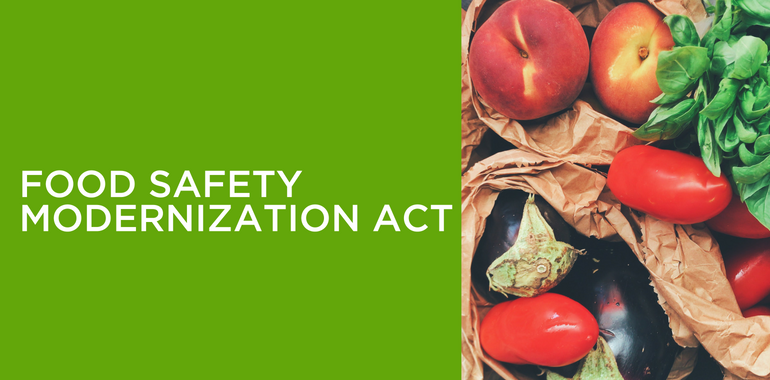 FSMA Update
FSMA Update
FDA Releases Guide for FSMA
The FDA has released a Small Entity Compliance Guide for FSMA which provides clarification on compliance dates and information on extensions.
Download full Compliance Guide
Legislative Ag Tours
APG Participates in Ag Tours to Educate Sacramento LAWMAKERS
As part of our ongoing commitment to be a strong presence in our state capitol, our Director of Government Relations, along with fellow members of the Agricultural Presidents’ Council, have taken several California legislators and staff members on some agricultural tours. These on-site visits give our elected officials a chance to get a little dirt on their boots all while getting a hands-on education on the ag industry and the impact that their decisions have on farmers and the industry.


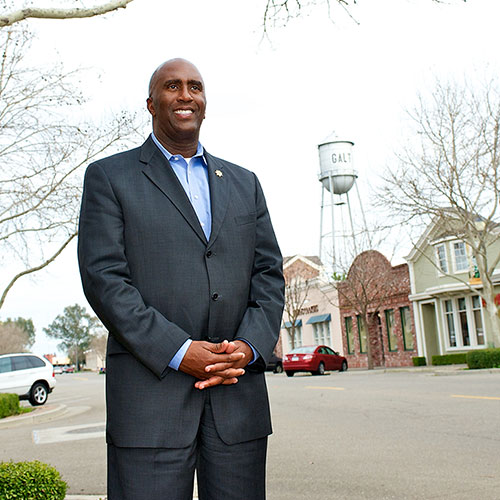
On March 20, 2018, APG State PAC participated in a fundraiser dinner for Assembly Member Jim Cooper (D-Elk Grove). Assembly Member Cooper represents the 9thAssembly District of California, which includes the areas of South Sacramento, Galt, and Lodi. Mr. Cooper has been a good ally to the agriculture community since being elected in 2014. At the dinner, the Assemblyman talked about his desire for thoughtful, bipartisan policymaking rather than reactive legislation that has negative consequences for many, including agriculture.
Pistachios Hit D.C.
Pistachio Power Heads to the Capitol
APG’S, Director of Government Relations, Rob Nash, traveled to Washington D.C. to advocate on behalf of American Pistachio Growers' members. Rob’s daily agenda was packed with meetings, presentations and getting the voice of APG members heard. While in D.C., he shared the mission of APG growers with:
- U.S. International Trade Commission to discuss questionnaire used for sunset review process
- U.S. Dept. of Agriculture to discuss EC Ochratoxin Program and new aflatoxin regulations
- U.S. Senator Jerry Moran (R-KS) to discuss the Farm Bill
- Chinese Agriculture Counsellor at the Embassy of Peoples Republic of China to discuss increased pistachio tariffs in China
- Participated in Specialty Crop Farm Bill Alliance lobbying day on Capitol Hill to promote the continued funding for Specialty Crop Research Initiative (SCRI), Market Access Program (MAP), Technical Assistance for Specialty Crops (TASC) and other federal programs assisting specialty crops.

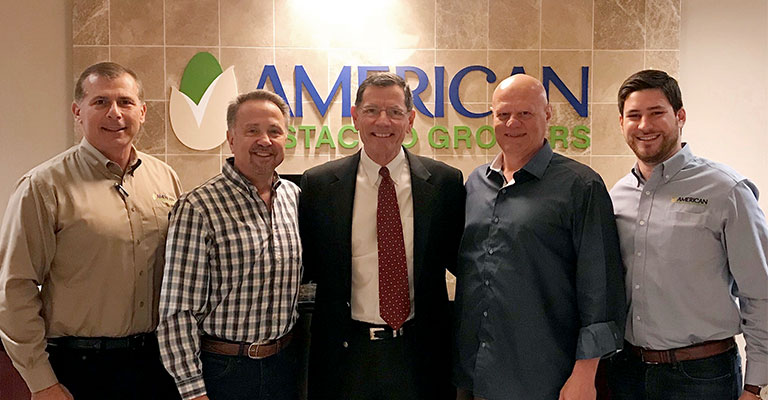 Pistachio PAC Update
Pistachio PAC Update
APG Hosts Pro-Ag Senator from Wyoming
American Pistachio Growers was honored to host Senator John Barrasso (R-WY) for a breakfast with our Pistachio PAC Presidents Club. Discussion covered everything from trade issues and opportunities to the economic impact that American pistachios have on the economy. A fun little tidbit about the Senator: He was once a rodeo physician.
APG California PAC Update
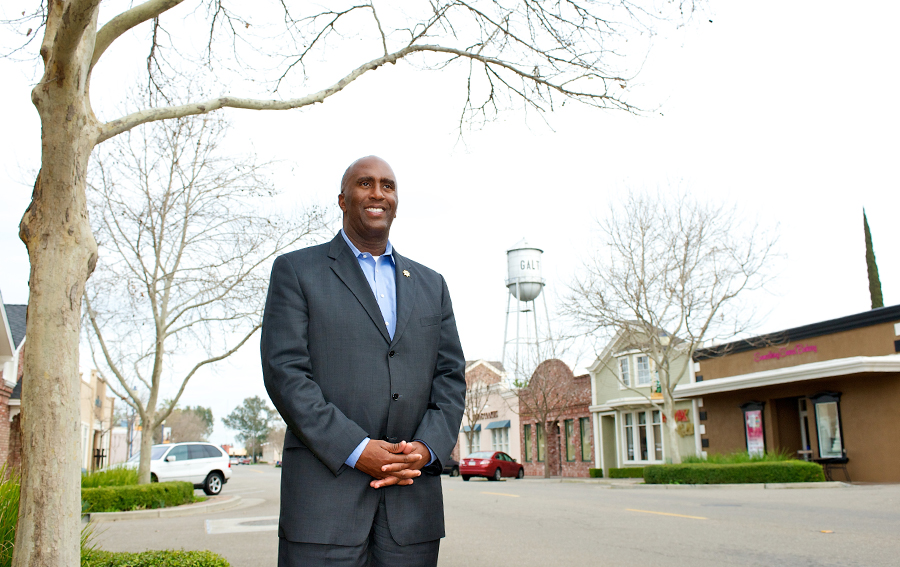 On March 20, 2018, APG State PAC participated in a fundraiser dinner for Assembly Member Jim Cooper (D-Elk Grove). Assembly Member Cooper represents the 9thAssembly District of California, which includes the areas of South Sacramento, Galt, and Lodi. Mr. Cooper has been a good ally to the agriculture community since being elected in 2014. At the dinner, the Assemblyman talked about his desire for thoughtful, bipartisan policymaking rather than reactive legislation that has negative consequences for many, including agriculture.
On March 20, 2018, APG State PAC participated in a fundraiser dinner for Assembly Member Jim Cooper (D-Elk Grove). Assembly Member Cooper represents the 9thAssembly District of California, which includes the areas of South Sacramento, Galt, and Lodi. Mr. Cooper has been a good ally to the agriculture community since being elected in 2014. At the dinner, the Assemblyman talked about his desire for thoughtful, bipartisan policymaking rather than reactive legislation that has negative consequences for many, including agriculture.
Jacqui Irwin (D-Thousand Oaks)
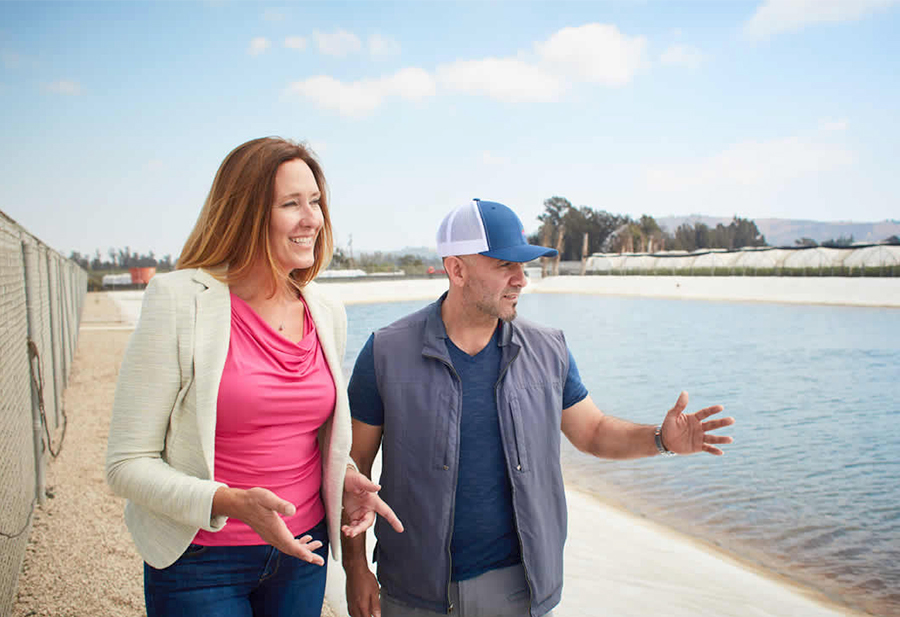 On March 21, 2018, APG State PAC participated in an event for Assembly Member Jacqui Irwin (D-Thousand Oaks) who represents the 44thAssembly District in California, encompassing Thousand Oaks, Oxnard, Camarillo, and Moorpark. As a member of the Assembly Agriculture Committee, Ms. Irwin is familiar with the issues facing the industry, such as water and overregulation. Drawing from her engineering background, she has a no-nonsense approach to policymaking. The legislature and agriculture industry can greatly benefit from her more fact-based reasoning.
On March 21, 2018, APG State PAC participated in an event for Assembly Member Jacqui Irwin (D-Thousand Oaks) who represents the 44thAssembly District in California, encompassing Thousand Oaks, Oxnard, Camarillo, and Moorpark. As a member of the Assembly Agriculture Committee, Ms. Irwin is familiar with the issues facing the industry, such as water and overregulation. Drawing from her engineering background, she has a no-nonsense approach to policymaking. The legislature and agriculture industry can greatly benefit from her more fact-based reasoning.
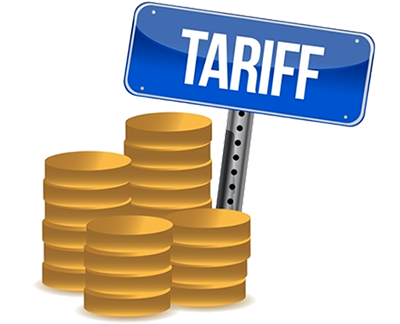
China Tariffs
China’s Ministry of Commerce (MOFCOM) has implemented tariffs on a targeted set of U.S. exports, which includes both raw and roasted in-shell pistachios, and shelled pistachios. The tariff adds an additional 15 percent, thus raising the Chinese tariffs on both in-shell and shelled pistachios to 20% each. For roasted in-shell pistachios, the tariff has been increased to 25 percent.
American Pistachio Growers Statement on the China Tariffs
American Pistachio Growers supports an end to the tariff issue between the United States and China and urges both countries to come together and work out an amicable solution that will allow trade to continue and both economies to prosper. China is an important export destination for American-grown pistachios, and the lack of resolution of this issue could hurt both American growers and Chinese consumers alike. American Pistachio Growers appreciates all the business we have with our Chinese buyers and consumers and looks forward to this continued relationship into the future.

Federal Tax Co-op Loophole Closed
When Congress overhauled the federal tax system at the end of 2017 with the Tax Cuts and Jobs Act of 2017, they unintentionally left a loophole in section 199A. The loophole made it so farmers could not only take the 20% deduction on the netincome of crops they sell to distributors that are classified as corporations, but also take the same deduction on grosssales to cooperative distributors.
The “grain glitch,” as the loophole has come to be referred to, was undone in the $1.3 trillion federal spending bill (Consolidated Appropriations Act, 2018) that was just passed by Congress. The fix repeals the special deduction for qualified cooperative dividends and repeals the exclusion of cooperative dividends from the calculation of qualified business income. It is retroactive to January 1, 2018. For a more detailed analysis of the “grain glitch” and the correction in the spending bill.
Temperance Flat Reservoir Project Update
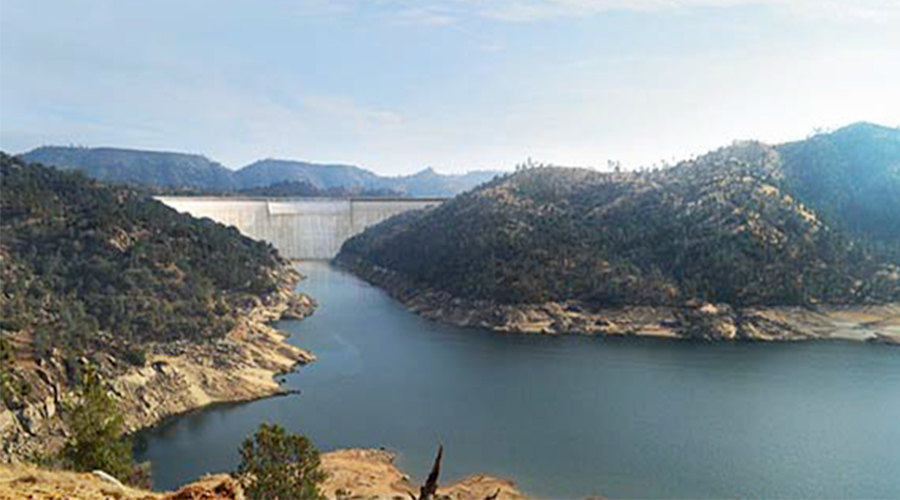 On February 2, 2018, the California Water Commission (CWC) staff posted online the results of the first round of evaluations of projects competing for Proposition 1 (2014) Water Storage Investment Program (WSIP) funds. Temperance Flat Reservoir Project (Temperance Flat), one of eleven projects competing for WSIP funds, received a public benefit ratio of 0.10, despite its proponents estimating the public benefit ratio to be 2.86. In order to be eligible for WSIP funds, a project needs to have a public benefit ratio of at least 1.0. The public benefit categories are: flood control, water quality, recreation, emergency response, and ecosystem.
On February 2, 2018, the California Water Commission (CWC) staff posted online the results of the first round of evaluations of projects competing for Proposition 1 (2014) Water Storage Investment Program (WSIP) funds. Temperance Flat Reservoir Project (Temperance Flat), one of eleven projects competing for WSIP funds, received a public benefit ratio of 0.10, despite its proponents estimating the public benefit ratio to be 2.86. In order to be eligible for WSIP funds, a project needs to have a public benefit ratio of at least 1.0. The public benefit categories are: flood control, water quality, recreation, emergency response, and ecosystem.
The Temperance Flat proponents have submitted an appeal of the CWC staff’s determination, which started with a meeting between project proponents and CWC staff to address each issue the staff had. Subsequently, project proponents submitted a 20-page letter with attachments that addresses each issue that CWC staff had. The Temperance Flat project proponents are optimistic that a new public benefit ratio determination will be satisfactory to the CWC thus making the project eligible for WSIP funds.
Next Steps: The results of the appeals process will be posted online on April 20 and CWC will host a public meeting on April 25. On July 6, following one additional public meeting, final scores and application ranks will be posted.
View Water Storage Investment Programs

SGMA Assistance Workshops
Hosted by the CA Department of Water Resource
Mark your calendars for an interactive workshop to discuss SGMA
implementation efforts, DWR planning and technical assistance, and key
components of Groundwater Sustainability Plan (GSP) development.
This workshop will feature brief presentations and
information booths on the following topics:
- GSP Development Information -Sustainable Management Criteria
- Assistance & engagement information
- Guidance, data, and tools overviews
☞ RSVP Here
Don’t miss the opportunity to meet DWR’s Sustainable
Groundwater Management Program staff!
More details to follow.
From Field to Capitol Hill
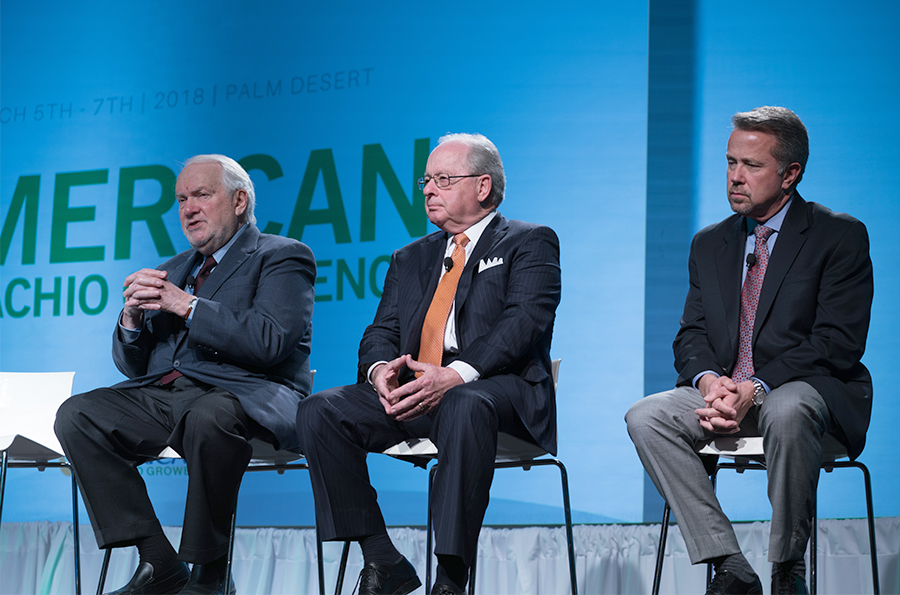 American Pistachio Conference attendees experienced a robust panel discussion focused on government, politics and how the American pistachio industry can impact them. Jim Zion, Chair of APG Government Policies & Partnerships Committee, started things off by giving an overview of the American Pistachio Growers government relations activities, before turning the stage over to session moderator, Rob Nash, APG Director of Government Relations. Joining the panel were APG advocates, George Soares and Bob Schramm.
American Pistachio Conference attendees experienced a robust panel discussion focused on government, politics and how the American pistachio industry can impact them. Jim Zion, Chair of APG Government Policies & Partnerships Committee, started things off by giving an overview of the American Pistachio Growers government relations activities, before turning the stage over to session moderator, Rob Nash, APG Director of Government Relations. Joining the panel were APG advocates, George Soares and Bob Schramm.
Bob Schramm, the APG advocate in Washington DC, provided an in-depth analysis of the relationship between the United States and other countries as it relates to the varying trade pacts, as well as the aflatoxin and ochratoxin issue currently facing the pistachio industry in the European Union. Schramm also highlighted the recent pistachio industry victory on Iranian pistachio tariffs and stressed to the audience the importance of staying vigilant for changes within this federal policy.
An overview of the political climate in California, where it appears to be heading, and the importance of the pistachio industry staying involved in policy-making were just some of the key statements given by George Soares, APG advocate in Sacramento. Soares highlighted the efforts of the ag industry in the debate over Cap & Trade and how what was a victory for ag could have easily been devastating without the collective voices and strong lobbying efforts of the industry.
This panel discussion truly demonstrated how vital it is for American Pistachio Growers to continue staying active in government and policymaking. The decisions of our elected officials will happen with or without input from the pistachio industry, so it’s important that APG continue to develop and maintain relationships with these officials and be the collective voice for the pistachio industry to them.
California Water Bond of 2018
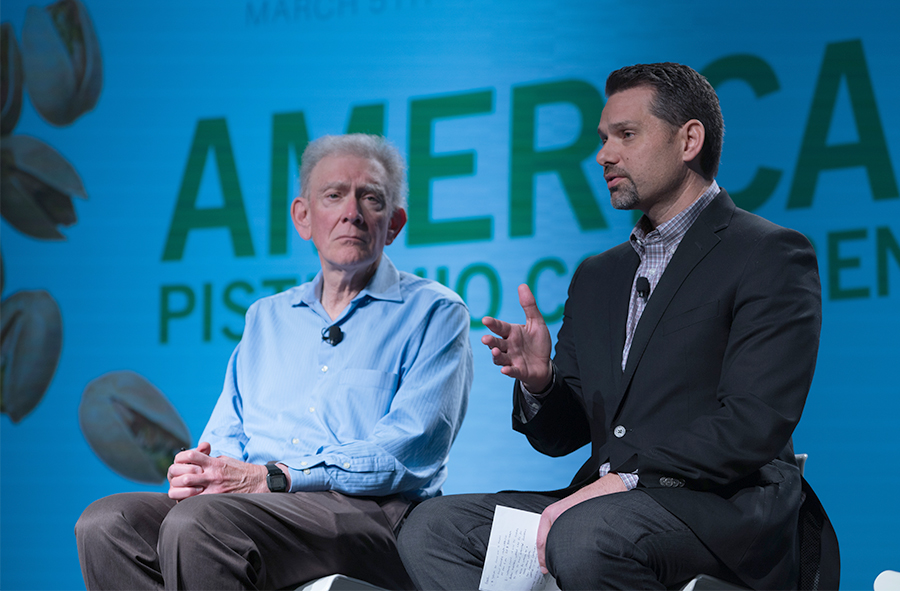 Water bond signatures have been submitted for certification. As of March 6, 2018, all the signatures gathered to put a water bond on the November 2018 ballot have been submitted for verification. These should be verified by the end of May, at which point the bond initiative will officially be qualified for the ballot.
Water bond signatures have been submitted for certification. As of March 6, 2018, all the signatures gathered to put a water bond on the November 2018 ballot have been submitted for verification. These should be verified by the end of May, at which point the bond initiative will officially be qualified for the ballot.
At the American Pistachio Conference, Dr. Gerald Meral, Water Bond Campaign Director, and Jason Phillips, CEO of Friant Water Authority, gave a presentation to attendees that detailed the backstory to the water bond and an update to the status of the campaign. Both speakers stressed the importance of involvement from the Central Valley and the agriculture community.
If you missed the presentation or want more information on the 2018 Water Bond, please visit WaterBond.org.
Pistachios Make an Impact
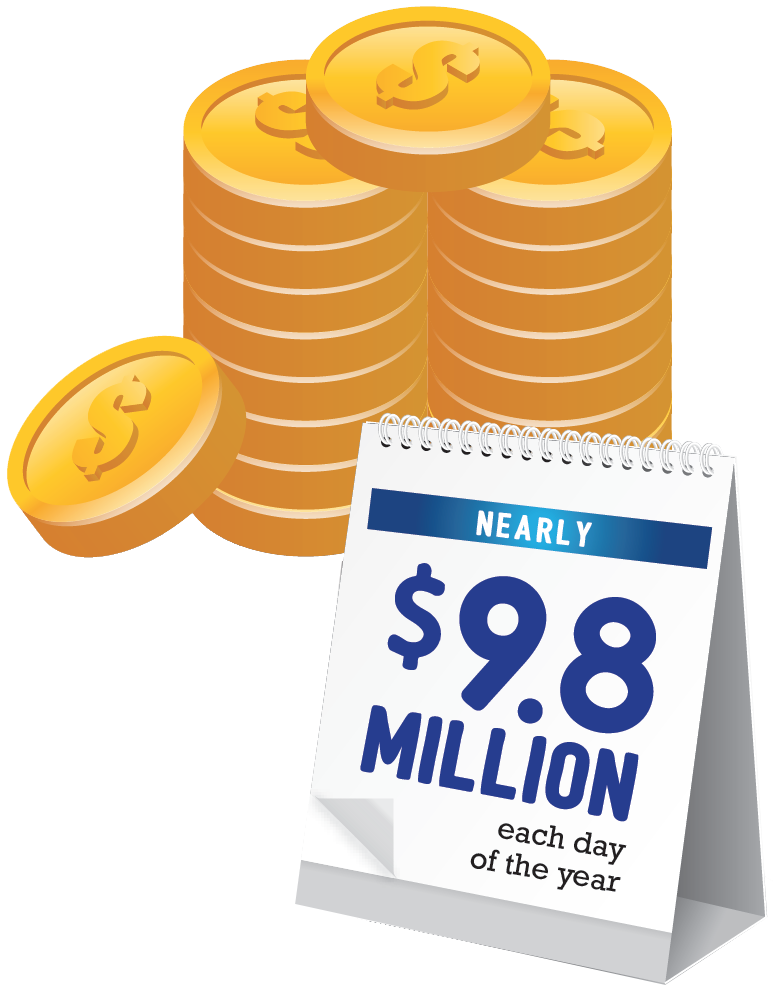 APG commissions economic impact reports for the pistachio industry
APG commissions economic impact reports for the pistachio industry
According to a new economic impact study commissioned by APG, pistachio growers and processors create nearly $3.6 billion in economic output in the state of California, generating jobs and spending across multiple sectors of the state’s economy. This equates to nearly $9.8 million each day of the year and accounts for more than 22,600 jobs and nearly $1.1 billion in annual labor income.
In Arizona, researchers estimated the total economic output of pistachio farming at $31.3 million by state, 303 jobs and $13.3 million in labor income. In New Mexico the total economic output of pistachio farming on that state’s economy is estimated at almost $7.1 million by state, 89 jobs and $3.1 million in labor income.
These numbers indicate the vast impact the pistachio industry has on federal, state, and local economies, as well as the communities that foster the industry. Read the full press release.
APG Pistachio PAC
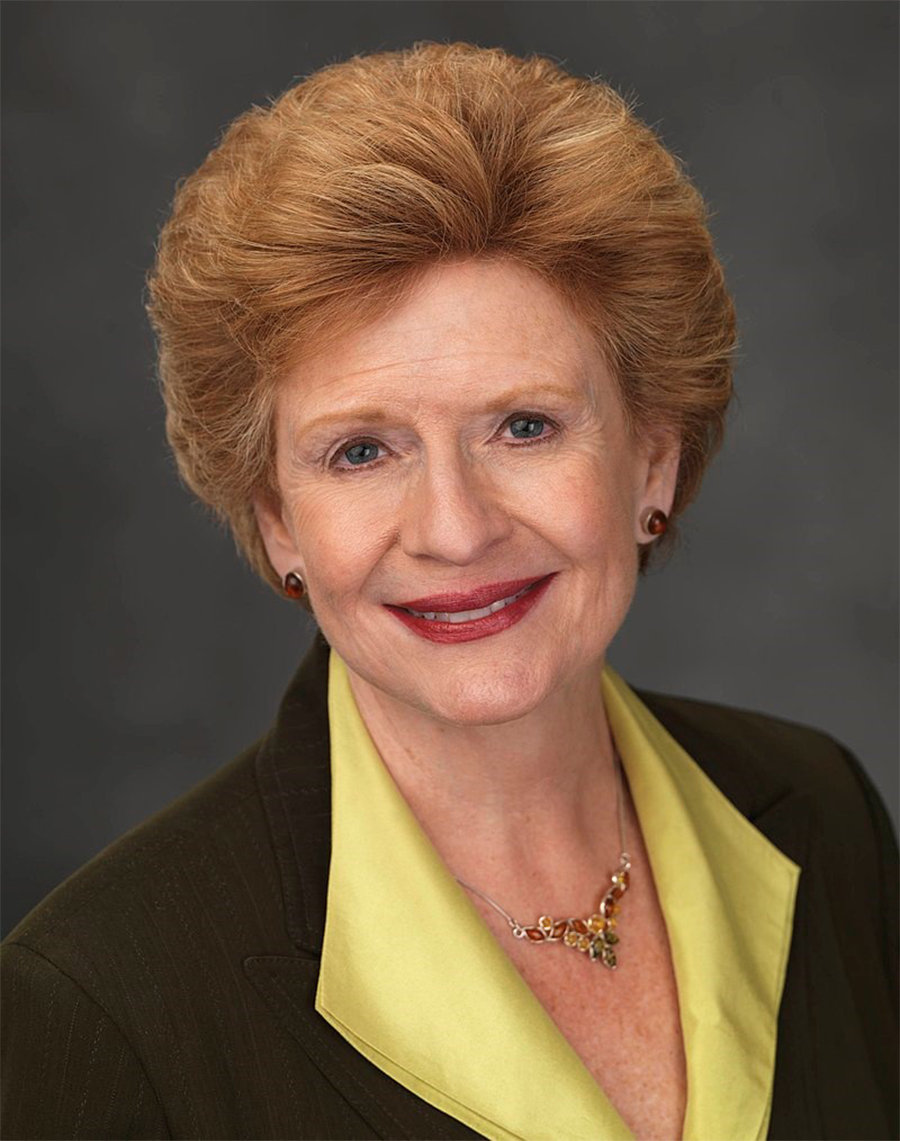 Outreach & Activities
Outreach & Activities
On February 20, 2018, Senator Debbie Stabenow (D-MI) visited the Central Valley. APG, along with other agriculture groups from the Valley, hosted a luncheon fundraiser for the Senator in Fresno, CA. APG was represented by Jim Zion, Chair of the APG Government Policies & Partnerships Committee, and Rob Nash, APG Director of Government Relations.
Senator Stabenow is the ranking member on the Senate Agriculture Committee and was once the committee’s chair. During the luncheon, she spoke about the ongoing debate surrounding the Farm Bill and the importance of making sure specialty crops are addressed as a priority. Though it is not always the case with legislators from outside of California, with Senator Stabenow it is clear Central Valley agriculture has an ally in Washington D.C.
American Pistachio Growers and California Legislators Kitchen Dinner Event
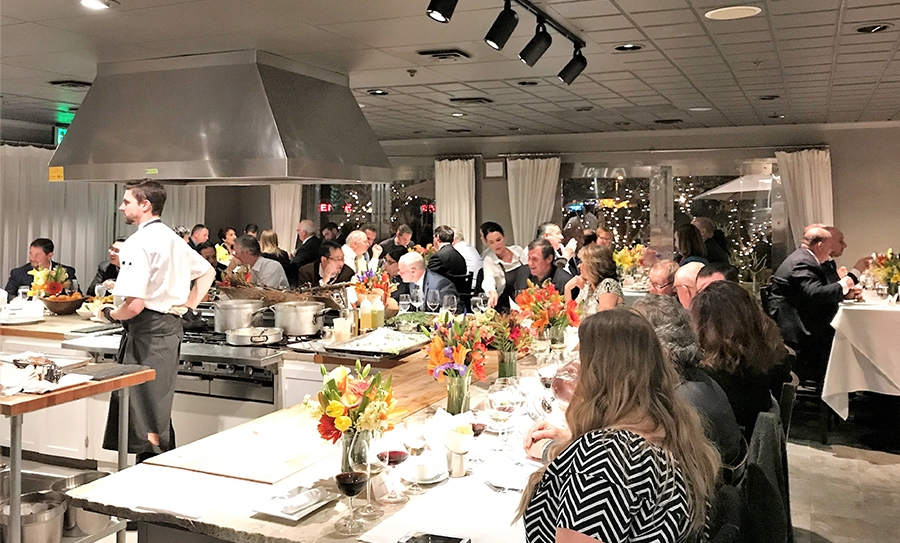 As a member of the Agricultural Presidents' Council, American Pistachio Growers participated in the Kitchen Dinner held in Sacramento on February 20, 2018. Rob Nash, Director of Government Relations, represented APG at the dinner where 30 California State Legislators were in attendance.
As a member of the Agricultural Presidents' Council, American Pistachio Growers participated in the Kitchen Dinner held in Sacramento on February 20, 2018. Rob Nash, Director of Government Relations, represented APG at the dinner where 30 California State Legislators were in attendance.
The event provided a great opportunity to meet with legislators from all over the state; some from the Central Valley who are very familiar with the issues facing farmers in California, and some from the more urban parts of the state. For urban legislators, in particular, the event gave agriculture associations, including APG, the opportunity to put a face to the industry and start developing relationships with these policymakers who might not have a full understanding of agriculture in California. The dinner was merely the first step toward building these relationships, and already many of the legislators in attendance have reached out requesting ag tours in the Central Valley.
Grower Training Opportunities
APG has also teamed with other agriculture associations and government agencies in sponsoring grower training sessions on “Heat Illness Prevention” and “Sexual Harassment Prevention.”

Heat Illness Prevention Training
Friday, April 13, 2018
Spanish – 10:00 am to 12:00 pm/English – 1:30 pm to 3:30 pm
C.P.D.E.S. Portuguese Hall, 172 W. Jefferson Ave., Easton, CA 93706
No Cost to Attend | RSVP Not Required

Ag Associations and Organizations Sexual Harassment Prevention Training
Thursday, April 26, 2018
Spanish – 10:00 am to 12:00 pm/English – 1:00 pm to 3:00 pm
Fresno County Farm Bureau, 1274 W. Hedges Ave., Fresno, CA 93728
Who Should Attend: Managers, Supervisors and Foremen
RSVP REQUIRED: Call (559) 251-8468 or email clehn@niseifarmersleague.com
Secretary Sonny Perdue visits World Ag-Expo
 Sonny Perdue, the U.S. Secretary of Agriculture, visited the World Ag-Expo in Tulare, CA, on February 13 for a town-hall-style event with local agriculture community members. Rob Nash, American Pistachio Growers Director of Government Relations, was in attendance, along with several APG members. Secretary Perdue spoke to the audience about his experience as a farmer in Georgia and covered issues facing farmers in California—regulations, funding, labor, and water. He then went into a question-and-answer session.
Sonny Perdue, the U.S. Secretary of Agriculture, visited the World Ag-Expo in Tulare, CA, on February 13 for a town-hall-style event with local agriculture community members. Rob Nash, American Pistachio Growers Director of Government Relations, was in attendance, along with several APG members. Secretary Perdue spoke to the audience about his experience as a farmer in Georgia and covered issues facing farmers in California—regulations, funding, labor, and water. He then went into a question-and-answer session.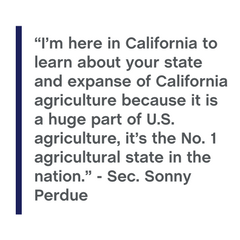 Secretary Perdue spoke on the Trump Administration’s efforts to cut regulations in a smart way, specifically citing the Food Safety Modernization Act (FSMA). He stated that the regulations need to increase health and safetybut in a way that is not problematic to the normal process of growing. Additionally, the Secretary highlighted the President’s call for $200 billion in direct infrastructure investment, 25 percent of which is to be used for rural agriculture. When asked, Perdue did not think that California’s sanctuary status would affect any infrastructure investment.
Secretary Perdue spoke on the Trump Administration’s efforts to cut regulations in a smart way, specifically citing the Food Safety Modernization Act (FSMA). He stated that the regulations need to increase health and safetybut in a way that is not problematic to the normal process of growing. Additionally, the Secretary highlighted the President’s call for $200 billion in direct infrastructure investment, 25 percent of which is to be used for rural agriculture. When asked, Perdue did not think that California’s sanctuary status would affect any infrastructure investment.
Following the town-hall meeting, Secretary Perdue, along with Congressmen Jim Costa (CA-16), David Valadao (CA-21), and Jeff Dunham (CA-10), toured the exhibits at the expo. Rob accompanied the group on the tour. The tour was led by APG’s own Brian Watte, who was serving in his capacity as President of the International Agri-Center Board.
New Year Brings New Promises from Government Leaders
These promises are condensed into short speeches, often interrupted by applause from supporters and silence from the opposition. In keeping with tradition, we've listened to the State of the Union from President Trump and the State of the State speeches addressing California, Arizona, and New Mexico, from their respective governors. In each of these speeches, plans were outlined on what these leaders plan on pursuing over the next year. It's important to take note of what might affect pistachios and the ag industry, including trade, infrastructure, and water just to name a few.
Of course, as policy is debated, these agendas may be amended or abandoned altogether; however, these speeches are good indicators of where the debates are heading. While the speeches covered a wide array of issues, below is a short analysis based upon issues of heightened importance to APG members.
President Trump Gives First State of the Union
 In his first State of the Union, President Donald J. Trump stuck with his “America First” theme, highlighting the elimination of regulations and the major tax reform achieved in the final weeks of 2017.
In his first State of the Union, President Donald J. Trump stuck with his “America First” theme, highlighting the elimination of regulations and the major tax reform achieved in the final weeks of 2017.
The President expressed a desire that trading relationships with other countries be “fair and reciprocal,” and he promised to fix bad trade deals and negotiate new ones. Additionally, the President touched on immigration and laid out the four pillars of his plan:
- Path to citizenship for 1.8 million undocumented immigrants who were brought here by their parents at a young age
- Fully secure the border
- End the visa lottery
- End chain migration
The State of the Union also included a call for Congress to pass legislation that would generate at least $1.5 trillion in new infrastructure investment. It's promising that the President specifically cited waterways when stressing the importance of infrastructure investment.
Governor Brown Gives Last and Final State of the State
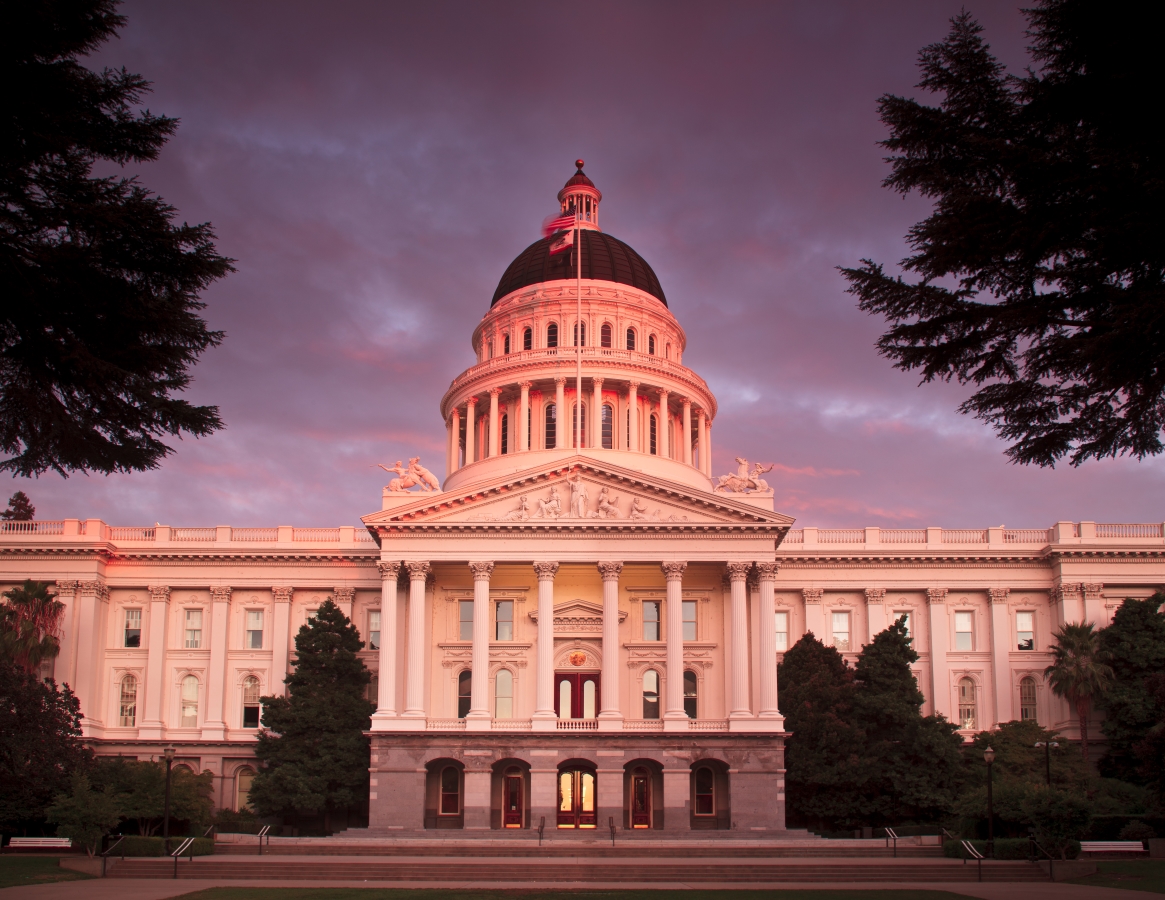 Making a historic 16th and final State of the State speech, California’s Governor Edmund G. Brown centered on a theme of California playing the role of leader. He highlighted the efforts his administration has made toward curbing climate change, specifically citing the State’s cap-and-trade program, the final version of which was considered a victory by the agriculture industry.
Making a historic 16th and final State of the State speech, California’s Governor Edmund G. Brown centered on a theme of California playing the role of leader. He highlighted the efforts his administration has made toward curbing climate change, specifically citing the State’s cap-and-trade program, the final version of which was considered a victory by the agriculture industry.
With so many questions currently surrounding the California Water Commission and the water storage projects currently vying for funding, it was promising to hear the Governor speak of the importance of being able to capture and store rainwater overflow.
Governor Brown also doubled-down on his desire to move the California WaterFix forward, commonly known as the “twin tunnels project.” Just recently, due to lack of funding and enthusiasm for the project, the Governor proposed changing the two-tunnel project to a single tunnel and possibly adding the second at a later time.
Arizona's State of the State
Governor Ducey's last State of the State before embarking on a re-election campaign. Giving his final State of the State before asking the Arizona voters to re-elect him for a second term, Governor Doug Ducey made education reform his high priority, declaring that 80 percent of new budget priorities would be for public education. Arizona can likely expect this to take up much of the Governor’s bandwidth through the year and into the election in November.
Giving his final State of the State before asking the Arizona voters to re-elect him for a second term, Governor Doug Ducey made education reform his high priority, declaring that 80 percent of new budget priorities would be for public education. Arizona can likely expect this to take up much of the Governor’s bandwidth through the year and into the election in November.
With regard to past accomplishments, Governor Ducey cited his administration’s success in eliminating “needless state regulations,” including 676 last year alone. His message to resisters: “The train is leaving the station. Get on board, or you’re going to get left behind.” He highlighted the importance of trade with Mexico, stating that the cooperative relationship Arizona has developed with the neighboring Mexican state of Sonora. With water being a growing issue in the state, the Governor warned that responsible water policies would be needed to avoid “sharing in California’s water crisis.” While no specific policies were put forward, Governor Ducey called for “responsible policies” to help avoid a future water crisis.
He highlighted the importance of trade with Mexico, stating that the cooperative relationship Arizona has developed with the neighboring Mexican state of Sonora. With water being a growing issue in the state, the Governor warned that responsible water policies would be needed to avoid “sharing in California’s water crisis.” While no specific policies were put forward, Governor Ducey called for “responsible policies” to help avoid a future water crisis.
Ducey ended his speech with a call for unity and read the following quote from Abraham Lincoln: “We are not enemies, but friends. We must not be enemies. Though passion may have strained, it must not break our bonds of affection. The mystic chords of memory will swell when again touched, as surely they will be, by the better angels of our nature.”
New Mexico Governor Delivers Her Final State of the State
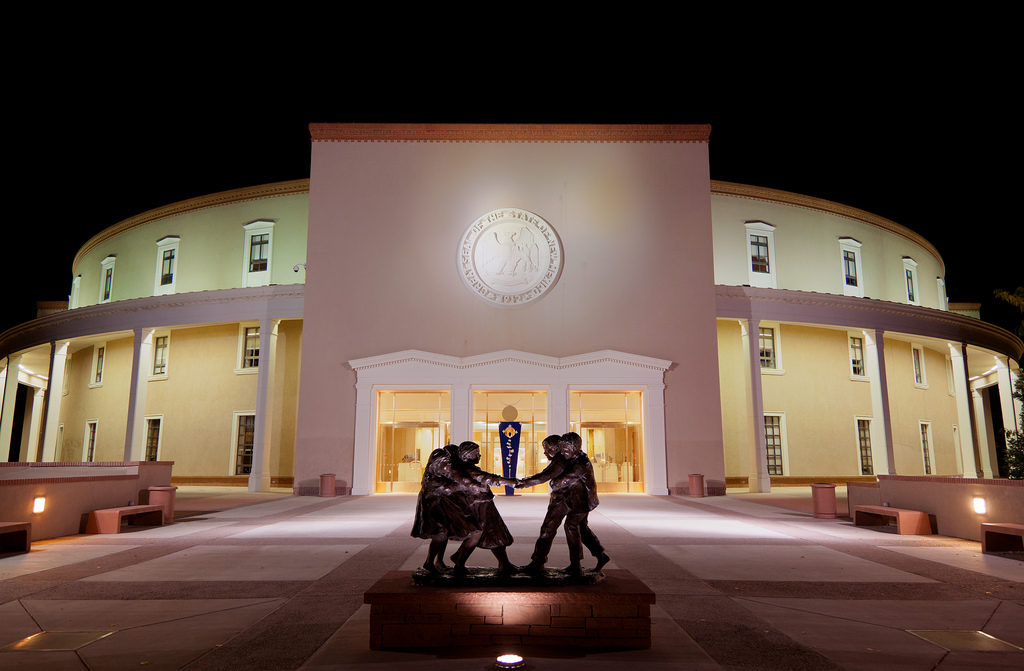 With her second term coming to an end, New Mexico Governor Susana Martinez gave her final State of the State address, with a focus on crime, education, and the economy. Citing a budget surplus of over $330 million dollars, Governor Martinez hinted at the idea of returning some of that money to taxpayers, possibly providing tax cuts. She then asked the New Mexico legislature to “finally tackle comprehensive tax reform this session.”
With her second term coming to an end, New Mexico Governor Susana Martinez gave her final State of the State address, with a focus on crime, education, and the economy. Citing a budget surplus of over $330 million dollars, Governor Martinez hinted at the idea of returning some of that money to taxpayers, possibly providing tax cuts. She then asked the New Mexico legislature to “finally tackle comprehensive tax reform this session.”
She also praised the state for its more hands-off approach to regulation by regulating “when we needed to, not simply because we had the power to.” Finally, the Governor applauded her administration for how infrastructure investments were made, specifically citing “big water projects throughout the state.”
Grower Training Opportunities
The Food Safety Modernization Act (FSMA) Produce Safety rule, which requires one designated supervisor to undergo their training is now in effect. In compliance with the new rule, APG is sponsoring a Produce Safety Rule training seminar at the end of March for current APG members. The class is expected to reach capacity quickly, so register as soon as possible.
APG has also teamed with other agriculture associations and government agencies in sponsoring grower training sessions on “Heat Illness Prevention” and “Sexual Harassment Prevention.”
Congress Passes Sweeping Federal Tax Overhaul
In the final weeks of 2017, Congress passed H.R.1, the Tax Cuts and Jobs Act. Several items of note for APG members are as follows:

- The Interest Charge – Domestic International Sales Corporation (IC-DISC) was retained. In earlier versions of the bill, the program was eliminated; however, strong lobbying efforts, including those from the agricultural community, helped to keep the IC-DISC program intact.
- Cash method of accounting was preserved and, in fact, the universe of taxpayers and farming C corporations, who may use the cash method of accounting, was expanded.
- Estate Tax was saved, and the “Death Tax” exemption increased to approximately $11 million per individual ($22 million per couple), and it is indexed.
Report on the Tax Cuts and Jobs Act and how it will affect your business interests.
APG Backs 2018 Water Bond Effort
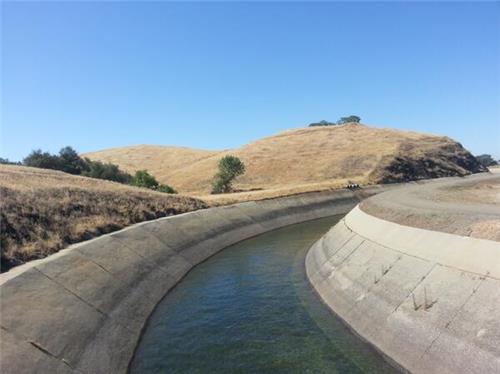 APG has been part of an effort to place a water bond on the November 2018 ballot, which will invest nearly $9 billion in California water infrastructure. Realizing the incredible benefit this investment would mean for the agricultural community, APG contributed financially to the signature-gathering effort and has been an active participant in the Water Bond Steering Committee, which directs the activities of the bond effort. As of mid-December, it is anticipated that the requisite number of signatures to qualify for the November 2018 ballot will be gathered by the end of January, which is very promising news. The measure is being sponsored by a diverse coalition that includes conservation, agricultural, water and civic organizations, and includes funding for Friant-Kern Canal restoration and Sustainable Groundwater Management Act (SGMA) implementation, among other important projects. There will be subsequent updates on the bond as the process moves forward, and please don’t hesitate to contact Rob Nash with questions regarding this effort.
APG has been part of an effort to place a water bond on the November 2018 ballot, which will invest nearly $9 billion in California water infrastructure. Realizing the incredible benefit this investment would mean for the agricultural community, APG contributed financially to the signature-gathering effort and has been an active participant in the Water Bond Steering Committee, which directs the activities of the bond effort. As of mid-December, it is anticipated that the requisite number of signatures to qualify for the November 2018 ballot will be gathered by the end of January, which is very promising news. The measure is being sponsored by a diverse coalition that includes conservation, agricultural, water and civic organizations, and includes funding for Friant-Kern Canal restoration and Sustainable Groundwater Management Act (SGMA) implementation, among other important projects. There will be subsequent updates on the bond as the process moves forward, and please don’t hesitate to contact Rob Nash with questions regarding this effort.
For specific information on what the water bond will fund, please visit www.waterbond.org, specifically the section titled “Benefits to agriculture” & the ag section at https://waterbond.org/wp-content/uploads/2017/12/agriculture-benefits-of...
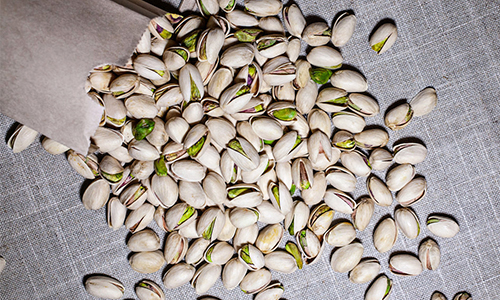 FSMA Produce Safety Rule Grower Training Opportunities
FSMA Produce Safety Rule Grower Training Opportunities
As a reminder, most farms are required to have at least one designated supervisor who has been trained in accordance with the Food Safety Modernization Act (FSMA) Produce Safety rule.
For California training opportunities, please click here.
For Arizona training opportunities, please click here.
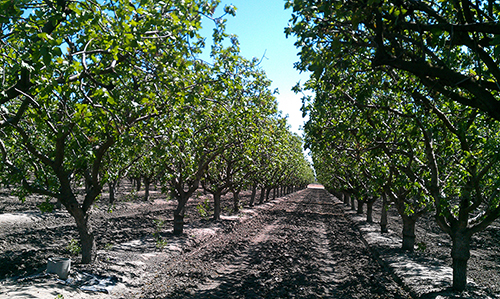 All pistachio growers are reminded to turn in the 2017 Pistachio Acreage Survey.
All pistachio growers are reminded to turn in the 2017 Pistachio Acreage Survey.
The forms were sent out to all growers by the Administrative Committee for Pistachios (the federal Marketing Order), in order to calculate and maintain pertinent grower information along with other accurate acreage figures and information for the industry. All individual data obtained is maintained as confidential by the federal Marketing Order.
For more information, contact the Administrative Committee for Pistachios at 559-255-6480 or info@acpistachios.org.
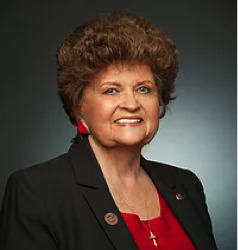 APG Government Relations Trip to Arizona
APG Government Relations Trip to Arizona
In mid-December, Rob Nash had the opportunity to take a trip down to Phoenix, Arizona to learn about the issues facing APG’s Arizona members. With Board Member Richard Searle as legislative guide, Rob had meetings with representatives from the Arizona Farm Bureau Federation and the Arizona Cattlemen’s Association, where he got a crash course in water issues currently facing Arizona along with an overview of the current political landscape and how that might affect the agriculture community. Additionally, Rob and Richard were able to do a meet-and-greet with State Senator Gail Griffin (R-Hereford), who is the Majority Whip in the Senate and the Chair of the Natural Resources, Energy & Water Committee. The Senator’s water priorities are in line with the agriculture community, and while some of the Governor’s potential solutions may not be ideal, APG has a strong and powerful ally and advocate in Senator Griffin.
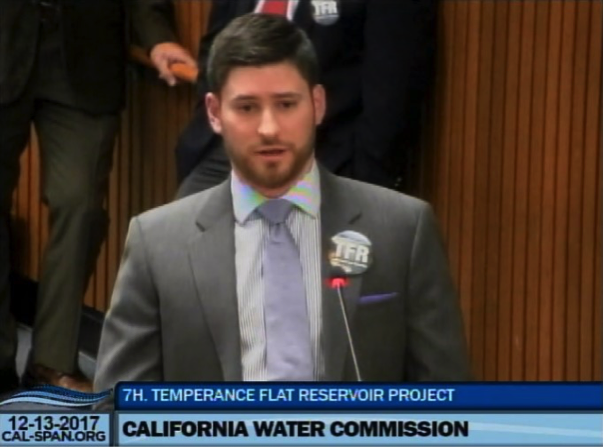 APG Represented at California Water Commission Presentation on Temperance Flat Reservoir Project
APG Represented at California Water Commission Presentation on Temperance Flat Reservoir Project
On December 13, the California Water Commission heard presentations from eleven water-related projects from across California that are requesting Proposition 1 (2014) Water Storage Investment Program (WSIP) funding to further the projects. Along with a coalition of state legislators, county supervisors, water districts, and agriculture representatives, Rob Nash appeared before the Commission to advocate for funding to be provided to the Temperance Flat Reservoir Project. In a show of support, Rob aligned APG and its membership with both the presentation and the preceding comments. The Commission will have final decisions on funding later on in 2018.
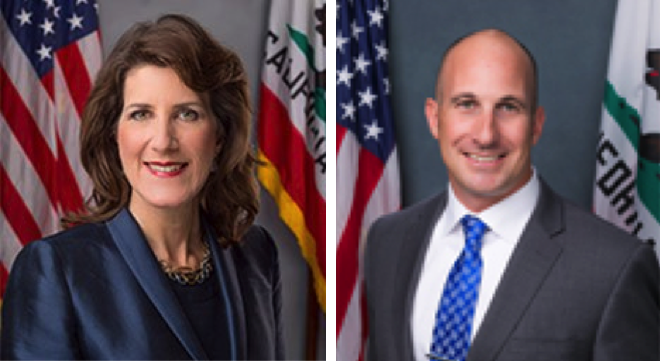 PAC Updates: Events for Assembly Members Catharine Baker and Heath Flora
PAC Updates: Events for Assembly Members Catharine Baker and Heath Flora
In December, the APG State PAC made contributions to and participated in events for California Assembly Members Catharine Baker (R-Dublin) and Heath Flora (R-Ripon). Both events were informational luncheons where APG had the opportunity to participate in Q&A’s and have one-on-one conversations with the candidates. Events such as these give APG invaluable exposure to State policy makers. In the coming months, Rob will be encouraging APG members to get involved with the PAC, both financially and with their time. The more APG can be viewed as a strong participant in the political process, the greater the opportunities for influencing that process will be.
Sunset Review
For Immediate Release
U.S. International Trade Commission Renders Affirmative Determination in Five-Year (Sunset) Review of Antidumping Duty Order Against U.S. Imports of Raw In-Shell Pistachios from Iran
FRESNO, Calif., June 2, 2017–The U.S. International Trade Commission (USITC) determined today, by a unanimous vote of 5 to 0, that revoking the U.S. antidumping duty order on imports of raw in-shell pistachios from Iran would be likely to lead to continuation or recurrence of material injury to the U.S. pistachio industry within a reasonably foreseeable time. Therefore, the U.S. antidumping duty order on imports of raw in-shell pistachios from Iran will therefore remain in place.
The antidumping duty order was first imposed by the United States in 1986 as the result of a successful petition filed by U.S. pistachio growers and processors. The order, which imposes special import duties of 241.14 percent on U.S. imports of Iranian pistachios, has been instrumental in allowing the U.S. industry to thrive since that time.
Dumping is the practice of selling goods in export markets for prices that are lower than in the producer's home market or below the cost of production. International law provides for antidumping duties to remedy such behavior when it threatens or causes material injury to producers in the export market. Orders imposing such duties must be reviewed periodically to determine whether they continue to be justified.
Generally, such "sunset" reviews are conducted every five years, but under U.S. law, the time during which imports are prohibited by a trade embargo are not counted. This was the second "sunset" review of the pistachio order against Iran since 1986.
The reasoning behind today's decision will not be known until June 25, when the USITC will release its full report.
American Pistachio Growers is pleased the Commissioners vote continues to maintain the existing tariffs on imported product. American Pistachio Growers Executive Director Richard Matoian stated, “We are pleased with this decision. We believe we had provided the necessary evidence the American pistachio industry would be harmed by imported products from Iran, and today the Commission, with its vote, has agreed with our position.”
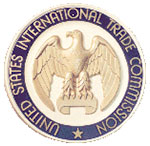 Sunset Review Questionnaire
Sunset Review Questionnaire
APG previously announced that the U.S. International Trade Commission (USITC) was planning to mail its Sunset Review questionnaire to a number of pistachio growers and handlers. They have informed us that these questionnaires were sent out. If you have received the questionnaire, APG strongly urges you to respond. We know that this is neither an easy questionnaire nor one that you can quickly fill out, but in order to defend our industry, it requires your attention.
For assistance, the USITC has provided a name and contact information in the questionnaire —they are there to help you answer difficult questions. If you are not satisfied with the USITC staff person’s response then we urge you to contact either Lorren Walker (202-266-3999) or Bob Schramm (202-266-3900), at Schramm, Williams & Associates.
Return your completed questionnaire to the USITC, and also be sure to forward a copy to pistachios@adduci.com. Adduci is APG’s legal trade firm, representing our members on this issue. They will keep your information confidential.
Antidumping Raw Inshell Sunset Review
APG is preparing for the sunset review of the antidumping order on raw inshell pistachios. The next event will be responding to U.S. International Trade Commission questionnaires which will be sent by USITC to U.S. growers and processors, U.S. pistachio importers, and Iranian exporters and processors in early 2017. Responding to the questionnaires is not difficult once the instructions are carefully read through. APG will make support available to members for answering the questionnaires. It is important that the U.S. industry have at least 50 percent of growers and all the processors respond to the questionnaire. Following the completion of the questionnaire phase, the USITC will release the staff report, followed by preheating briefs. Sometime in April 2017 there will be a preheating conference, followed by the USITC hearing. This is the first pistachio sunset review since 2005 because President Obama imposed import sanctions on Iranian imports including pistachios; the law prohibits a review if there is an embargo. How President-elect Trump will administer the so-called Iran nuclear agreement is yet to be determined. During his campaign, Trump stated he would “…rip it up.” In addition, in November, shortly after Congress returned following the elections, the U.S. House of Representatives voted by an overwhelming majority of 419 to 1 for a 10-year reauthorization of the Iran Sanctions Act. Neither the Iran nuclear agreement nor the Iran Sanctions Act involves sunset reviews although there is pressure to re-impose an embargo if Iran violates the nuclear agreement.
California New Minimum Wage Requirements
On January 1, 2017, new minimum wage requirements went into effect in California, which increased the minimum wage to $10.50 per hour. It’s important to note that the minimum wage increase is based upon the number of employees employed. As a result, many small businesses will not be required to increase the minimum wage for 2017.
To learn more, read the memo from the CA Department of Industrial Relations (DIR) and the DIR Frequently Asked Questions (FAQ’s), especially as it relates to the determination of employment size. For more information on the CA minimum wage, visit the DIR website at http://www.dir.ca.gov/dlse/faq_minimumwage.htm.
Taxes
President-Elect Donald Trump Tax Reform
If the 115th Congress, which starts January 3, 2017, seriously considers tax reform, it will have not only President-elect Trump’s tax reform legislation to debate but more importantly, Speaker Paul Ryan’s tax reform legislation. Tax reform legislation has been considered by Congress for the last several years but the Obama Administration did not provide any sincere interest in the tax proposals. Now for the first time, both the Congress and the new administration will seriously debate a tax reform bill starting in 2017. Trump’s campaign tax propoal did not have any direct agricultural provisions, but he has proposed repealing the estate tax. Since farming is a capital intensive investment, his estate tax repeal proposal is expected to receive support from members of congress with a large number of farming constituents.
Food Safety – FSMA
Food Safety Modernization Act Implementation
For those food facility businesses that are considered large by FDA (over 500 employees), compliance with the FSMA Preventive Controls rule (handler rule) has been in effect since September 19th, 2016. FDA extended compliance dates for some provisions within the Preventive Controls (handler responsibilities) and Produce Safety rules (grower responsibilities), such as facilities solely engaged in packing and/or holding activities conducted on raw agricultural commodities (RACs) that are produce and/or nut hulls and shells and for certain facilities that would qualify as secondary activity farms except for the ownership of the facility. FDA recently published draft guidance (165 pages) for industry relating to Hazard Analysis and Risk Based Preventive Controls. FDA is requesting comment on this draft document. Compliance with the Produce Safety rule for farms with more than $500,000 in average annual produce sales will begin in January 2018. For small farms with more than $250,000 in average annual produce sales but less than $500,000 in average annual produce sales, compliance will begin in January 2019. For very small farms with more than $25,000 in average annual produce sales but less than $250,000 in average annual produce sales, dcompliance will begin in January 2020.
Trade
Trans-Pacific Partnership
With the election of President-elect Donald Trump, hopes for considering the Trans-Pacific Partnership (TPP) during the final days of the Obama Administration have all but vanished. The day following the election, Senate Majority Leader Mitch McConnell (R-KY) stated that TPP would not be brought before the Senate during the Lame Duck session. During the campaign, and recently candidate Trump repeatedly expressed his dissatisfaction with the agreement and promised to “rip up” the current negotiated text.
While problematic for industries, TPP is generally thought to be a good agreement for agriculture interests. For pistachios specifically, the agreement eliminates the high tariff on pistachios to Vietnam. The agreement is also backed by 72 percent of Vietnamese businesses.
While the status of the agreement is extremely uncertain, some TPP members have stated that they will pursue agreements with TPP members separately and entertain direct free trade agreement talks with China if the United States fails to approve the agreement.
Transatlantic Trade and Investment Partnership
The United States and the European Commission concluded their 15th negotiation session of the Transatlantic Trade and Investment Partnership (T-TIP) in early October 2016 in New York City. While concern for pistachios consists of tariff elimination and aflatoxin testing, little progress was made toward finalizing the agreement generally. Great divides have been expressed regarding Europe’s insistence on the use and expansion of Geographical Indications (GIs), tariff cuts to trade sensitive items, market access concerns, and sanitary and phytosanitary measures. (GIs identify agricultural product or foodstuff as originating in the territory of a Party, or a region or locality in that territory, where a given quality, reputation, or other characteristic of the product is essentially attributable to its geographical origin.)
While the commitment from U.S. trade negotiators is full tariff elimination for all agriculture products, Europe has not made the same level of commitment. With U.S. elections concluded, Obama Administration negotiators are tasked to complete as much of the agreement as possible before the new U.S. President is inaugurated. It is expected that most of 2017 will be lost in terms of finalizing T-TIP negotiations due to national elections occurring in both France and Germany.
Brexit - Its Effects on Trade and Agriculture
Brexit, the initiative of the British people to remove the United Kingdom from the European Union, recently hit a road block. A British court has determined that the June 2016 public referendum vote to remove the UK from European Union membership satisfies British law to move forward. The court ruled that Parliament must vote in favor of removing the country from the agreement for Brexit to be actionable. With the majority of Parliament against the exit, a timeline for Britain’s Prime Minister, Theresa May, to initiate exit proceedings is uncertain. Additionally, the government has appealed the ruling to a higher court.
Provided Brexit moves forward, exit negotiations will be extremely complex. The UK and the rest of the global community must determine how to handle its relationship with regard to World Trade Organization strictures and other matters. Over the last five years, U.S. exports of pistachios to the UK have averaged $13 million, which is approximately four percent of all exports to Europe.










